Analyst Craig Moffett of Bernstein Research likens the relationship between Apple and AT&T as that between the former and music labels dating as far back as 2001, when Apple first had to ingratiate itself with labels as it incorporated music CD ripping into iTunes. Apple at first won important concessions and praise from its partners, only for them to regret it later as the iPod maker's popularity left these companies at the supposedly smaller company's mercy.
When it comes to carriers, particularly AT&T, the researcher sees them as just now realizing the bad bargain they'd struck for themselves. As late as this spring, AT&T has continued to praise the iPhone as virtually saving the company from the US economy's fallout by driving customers to its network and encouraging them to spend more on data plans. But with the launch of the iPhone 3GS in June and the 3G congestion problems in the months leading up to the handset's debut, AT&T was increasingly cast as Apple's anchor — keeping a good device locked to a carrier that doesn't enable features like MMS and tethering.
"Apple has stolen the march, and in the process has recast AT&T from hero to villain," Moffett says. "At Apple’s June developer conference in San Francisco, where Apple unveiled its new [iPhone 3GS], AT&T was roundly jeered at every mention by the more than 5,000 application developers in attendance... even Apple itself seemed uncomfortable talking about its U.S. partner."
The attack is such that Apple has all but taken control of the partnership, according to the analyst. Now, the Cupertino company has "radically tilted" the normal balance of power against AT&T and cellular networks as a whole. If Apple preferred another carrier, many iPhone owners would switch to preserve the experience they already have; an incentive that forces carriers to keep the handset maker happy. At times, though, it also has the caustic effect of suggesting an conspiracy at the carrier to limit useful services, such as voice over IP calls, when cost or technical reasons are the real motivators.
And while the US government may be close to investigating exclusivity deals as possibly anti-competitive, Moffett argues that Apple's presence in the marketplace has actually helped competition by forcing companies to keep reasonable service rates and let apps dictate business rather than network services. Government intervention could paradoxically hurt the industry by telling providers how much they could discount a phone and hardware developers which networks they would have to support. Leaving Apple to pursue its usual path with corporate partners is considered the best route as it may keep those firms honest.
"In short, the iPhone seems to be doing just fine at wrecking the wireless business without the government’s help," the analyst notes.
 Katie Marsal
Katie Marsal
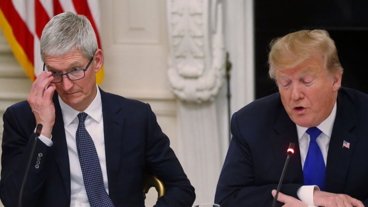
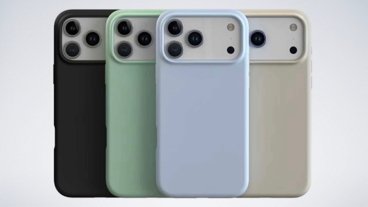

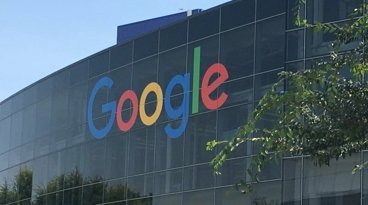


-m.jpg)






 Chip Loder
Chip Loder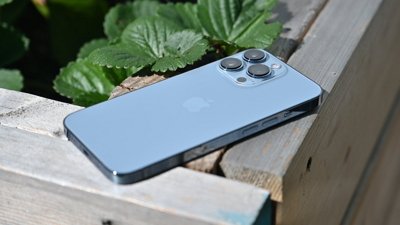
 Marko Zivkovic
Marko Zivkovic
 Malcolm Owen
Malcolm Owen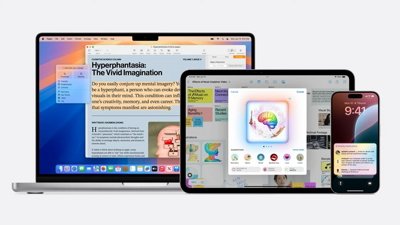
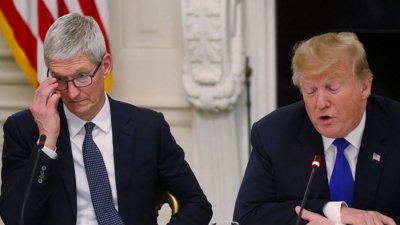
 William Gallagher
William Gallagher
 Christine McKee
Christine McKee
 Andrew O'Hara
Andrew O'Hara
 Andrew Orr
Andrew Orr



-m.jpg)




210 Comments
Another year and I'll be with the iPhone pack. When Steve introduces the next generation iPhone (iPhone 4GL?) at next year's WWDC to work on Verizon's LTE network coming in the second half of 2010, I'm in. I actually hate both Verizon and AT&T, but Verizon is definitely the lesser of two evils.
Another year and I'll be with the iPhone pack. When Steve introduces the next generation iPhone (iPhone 4GL?) at next year's WWDC to work on Verizon's LTE network coming in the second half of 2010, I'm in. I actually hate both Verizon and AT&T, but Verizon is definitely the lesser of two evils.
Prepare for disappointment.
This is a bullsh*t analysis. It says that AT&T is being cast as "the bad guy" but it doesn't mention that this is only valid if AT&T is not in fact the bad guy but only being cast as such. The actual reason they look bad is that they *are* under-performing and also gouging customers. They also oversold the capabilities of their network and when they finally get traffic driven to them by a product like iPhone their claims about how good the network structure is are proven to be false.
The same thing happened with the music industry. All Apple has done is use innovation to drive the customers into the arms of their partners. The customers they always said they wanted. If they can't handle the results I can't see how that's Apple's fault.
"Apple has stolen the march, and in the process has recast AT&T from hero to villain," Moffett says.
Nonsense. AT&T brought that entirely upon themselves through incompetence. Apple gave AT&T the opportunity to be the hero and AT&T failed their customers by being late on MMS and tethering and failing to adequately prepare for the huge increase in data usage that they should have seen coming from miles away.
Personally I don't care about any of the things they've dropped the ball on lately so I'm not clamoring for a new carrier, but I can totally understand why people are displeased with them.
As soon as Apple moves to another carrier, I'll drop AT&T like a hot potato. I don't care if I'm in the middle of a contract with them or not, I'll gladly pay the $175 to get our of this lousy service. "Fewest dropped calls"... "Raising the bar".... what bullshit that is. If I could get an iPhone on Sprint or Verizon, I would be unbelievably happy.